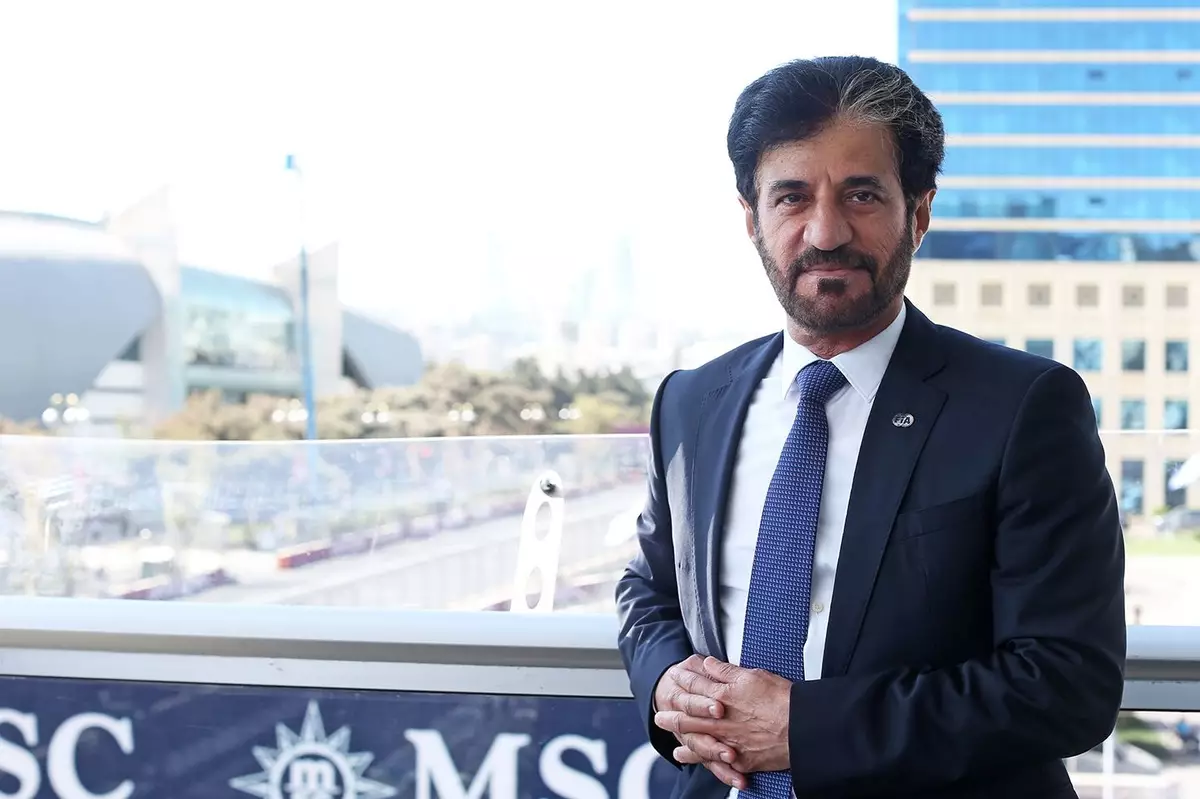In the high-octane world of motorsport, the interactions between figures in leadership positions and the media can sometimes come under intense scrutiny. Mohammed Ben Sulayem, the president of the FIA, has recently expressed his grievances regarding how he has been portrayed by the British media throughout his tenure. His remarks come on the heels of Adrian Newey’s comments during a podcast, where the renowned designer discussed the challenges faced by drivers like Max Verstappen and Sebastian Vettel, both of whom have allegedly received unjust criticism at times from the same media landscape.
Ben Sulayem’s commentary sheds light on the often precarious relationship that exists between influential sports figures and the press, particularly in a country steeped in motorsport tradition. What is essential to consider here is not merely the content of his statements, but the broader implications they carry for the governance of motorsport and how the media influences public perception.
During a candid interview with Autosport, Ben Sulayem conveyed a discerning view of the media’s motivations, claiming that their relentless scrutiny against him is primarily aimed at garnering attention and boosting their own narratives. He acknowledged the endemic nature of this criticism but staunchly defended the autonomy of the FIA, emphasizing that media opinions do not hold sway over the organizational structure and decision-making processes of the federation.
His assertion that the media’s view “does not matter” reflects a novel approach to leadership that prioritizes internal governance and member engagement over public sentiment. By framing himself as a champion of the sport who respects competition and champions, Ben Sulayem implicitly positions his agenda as one that reduces the noise surrounding him while strengthening the institution he leads. This method, while commendable, raises the question of how successful he truly is in maintaining a two-way communication channel with the media, which could be vital for the FIA’s public relations.
Ben Sulayem’s narrative resonates with many leaders in high-pressure environments, which often demand resilience in facing public ire. He articulated a belief that adversity has fortified him, revealing a more introspective side to his leadership style. The idea that criticism fuels personal growth is not new; however, Ben Sulayem’s insistence that such experiences have rendered him “more careful” and “wiser” is a mature reflection on leadership’s emotional toll.
Nevertheless, one cannot help but question whether such a stoic outlook can continue in the face of unyielding media attention. If the British media dares to challenge figures in power regularly, do leaders risk distancing themselves from the very constituents they serve? While Ben Sulayem appears undeterred by media scrutiny, a nuanced approach that balances transparency with assertiveness may prove more beneficial in bridging the gap.
Reflecting on his leadership since taking office in 2021, Ben Sulayem believes the FIA is better positioned now than at the beginning of his term. He credits his success to improved operational efficiency and a stronger alignment with member clubs. These accomplishments signify a shift in organizational dynamics, where a focus on member needs supersedes external pressures.
Yet, there remains the hurdle of securing re-election. By putting forth a solid manifesto and emphasizing a clear vision for the federation’s future, he prepares for his electoral bid. His statements unambiguously state that the members, not the media, hold the true power to endorse or reject his presidency. This reaffirms a commitment to democratic principles within the FIA, yet one has to ponder whether these ideals are genuinely reflected in the practical governance of motorsport.
As he looks to finalize his first term, Ben Sulayem champions a proactive approach focused on delivering results. His ambition to enhance the FIA’s fiscal health and improve industry relationships illustrates a forward-thinking mentality, which bodes well for the future of the organization. However, the complexities of media relations remain an area of concern that necessitates ongoing attention.
Ultimately, Ben Sulayem’s struggle against media scrutiny exemplifies a common tension in sports governance. The balance between maintaining media relations while fulfilling the organization’s mission is delicate, but essential. The FIA’s future—and indeed the integrity of motorsport as a whole—may depend on how well leaders like Ben Sulayem can navigate these turbulent waters, drawing strength from criticism while also engaging constructively with the media landscape.

